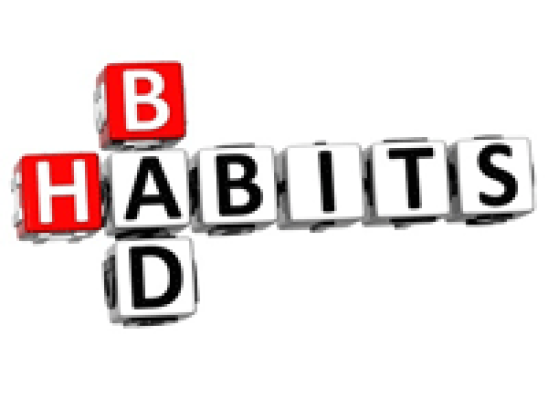Dealing with Social Situations and Self-Esteem Issues in Hair Pulling: Essential Strategies

Online test
Find out the severity of your symptoms with this free online test
Living with trichotillomania presents unique challenges, particularly in social situations. The visible effects of trich, hair loss or bald spots, can lead to feelings of embarrassment, shame, and lowered self-esteem. It can also lead to those inevitable questions that you just don’t want to deal with.
Navigating social interactions and maintaining a positive self-image can seem daunting, but with the right strategies, it's possible to manage these challenges effectively. You can have a fulfilling social life. This article offers practical advice on handling social situations, addressing self-confidence issues, while fostering a positive self-image.
Trich and Self-Esteem
Trichotillomania is often accompanied by feelings of guilt, shame, embarrassment, and fears of being judged. These feelings can lead to a cycle of negative self-perception that impacts self-esteem, making social situations even more challenging. The result is often an avoidance of social situations, even when you desperately might want to go. The fear of being judged can be overwhelming.
It's important to recognize that trich is a disorder that you have. It is not who you are, and it does not define you. It is not a reflection of your character or your worth. Understanding this can help reduce the self-blame that often exacerbates the emotional toll of the disorder. Acknowledging the psychological impact of trichotillomania is the first step toward developing strategies to boost self-esteem and improve social interactions.
Managing Social Situations with Confidence
Inevitably, there will be social situations that you will want or need to attend. With some planning and preparation, you can navigate them with confidence.
Planning for the Event
Plan Ahead
Before attending a social event, take time to prepare. Consider how you might respond if someone asks about your hair or notices any bald spots. Practice your responses so that in the moment, you won’t have to struggle for a response. Having a few responses ready can help you feel more confident. For instance, you could say, “I’m dealing with a medical condition that affects my hair, but I’m working through it.”
Choose Comfortable Settings
If possible, start with smaller, more familiar social settings where you feel comfortable. Gradually work your way up to larger, more public situations as your confidence grows.
Expect that you might be uncomfortable at first. And it’s OK. Have a plan for dealing with uncomfortable situations. One option might be to enlist the support of a buddy. Have a “signal” that you can use if the situation is overwhelming. Take a few minutes to gather your thoughts and return if you feel ready. As you learn to navigate social situations, your confidence will increase.
Responding to Questions and Comments
This is the part that is hard. You can’t always know what someone will say but there are ways to navigate the situation.
Keep It Simple
If someone asks about your hair, a brief, honest explanation is often sufficient. You don’t owe anyone a detailed account of your struggles. A simple statement like, “It’s a condition I’m managing,” can be enough to satisfy curiosity without delving into details.
Shift the Focus
If you’re uncomfortable discussing your trich, gently steer the conversation in a different direction. For example, you might redirect the conversation to a topic you’re more comfortable with or ask the other person a question about themselves. “Tell me about your new puppy!”
Build a Support Network
A support system can make navigating social situations easier. It’s like having a whole cheering section and can give you that boost of confidence you need.
Seek Understanding Friends
Surround yourself with friends and family who are supportive and understanding. They can offer encouragement and help you feel more at ease in social situations. Seeing a friendly face can help calm those fears.
Join Support Groups
Consider joining a support group, either in person or online, where you can connect with others who understand what you’re going through. Sharing experiences and strategies with others who have trich can provide comfort and reduce feelings of isolation. And it’s good practice for socializing with others.
Boost Your Self-Esteem
Boosting your self-esteem can give you the confidence you need to handle whatever comes your way.
Celebrate Your Achievements
Focus on your strengths and achievements. Regularly remind yourself of what you’re good at, whether it’s a skill, talent, or personal quality. Keeping a journal where you note daily accomplishments, no matter how small, can help reinforce a positive self-image.
Practice Positive Affirmations
Statements like “I am worthy and valuable” or “I am strong and capable” can help counteract negative thoughts and boost your self-esteem.
Practice Self-Care
Do things that make you feel good. Whether it’s exercise, hobbies, or spending time with loved ones, make time for activities that bring you joy and relaxation. Taking care of your overall well-being can improve your self-esteem and help you feel more confident in social situations.
Grooming and Personal Style
Experiment with hairstyles, headscarves, hats, or wigs that make you feel confident. Focusing on other aspects of your appearance, like clothing or makeup, can also help boost your self-image.
Seek Professional Help
Therapy can help you develop coping strategies, improve your self-esteem, and address any underlying emotional issues related to trichotillomania. Cognitive Behavioral Therapy (CBT), particularly Habit Reversal Training (HRT), can be effective in managing trich. Additionally, CBT can help challenge negative thought patterns that contribute to low self-esteem.
Cultivate Resilience and Self-Acceptance
Living with trich requires resilience and self-compassion. It’s important to accept that everyone has challenges. Practice self-acceptance by recognizing that your worth is not defined by your hair or appearance but by your character, actions, and the way you treat others.
Conclusion
Over time, as you implement these strategies, you’ll likely find that social situations become less daunting, and your self-esteem improves. Remember that progress may be gradual, and setbacks are a natural part of the journey. Celebrate your successes, no matter how small, and continue to focus on building a positive self-image and a fulfilling social life.
Online test
Find out the severity of your symptoms with this free online test
Start your journey with TrichStop
Take control of your life and find freedom from hair pulling through professional therapy and evidence-based behavioral techniques.
Start Now



